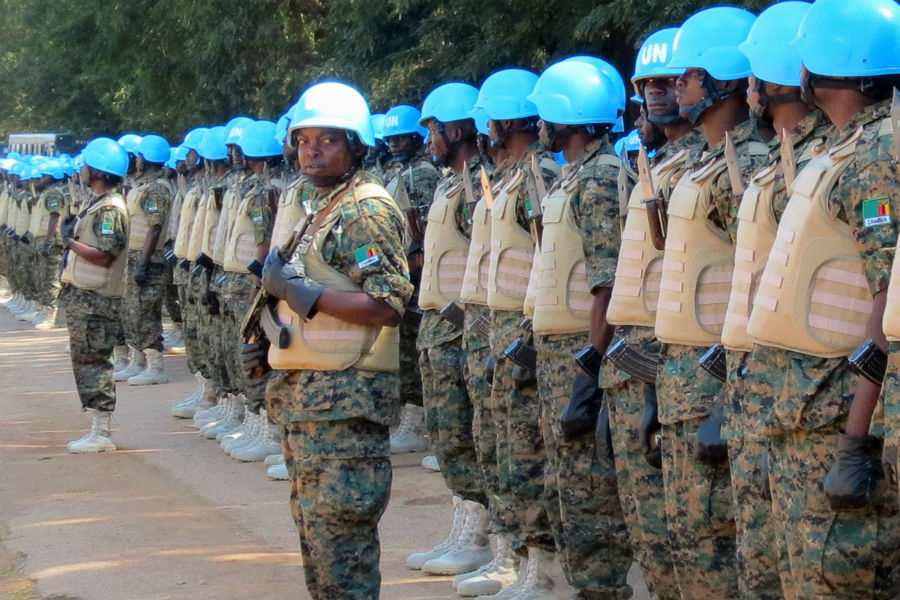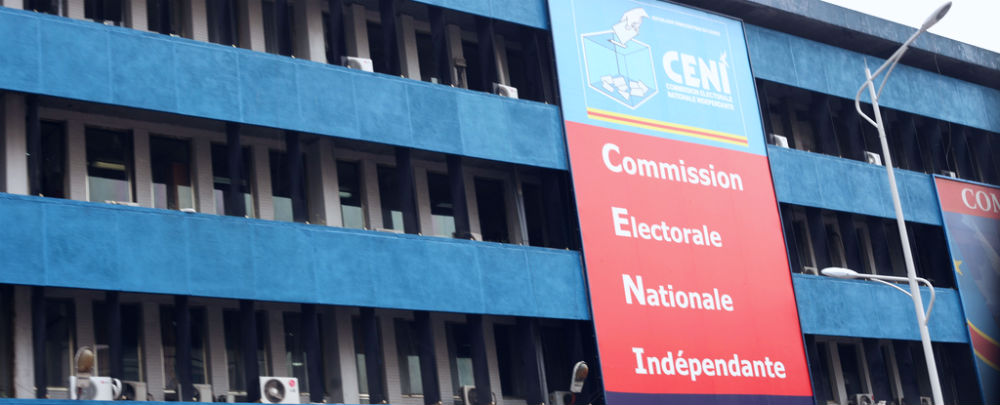
Photo: Monusco.
With a population of 100 million people bordering 9 countries, the Democratic Republic of the Congo (DRC) is both figuratively and physically in the heart of Africa. Developments in the DRC both impact and are impacted by events in Central, East, and Southern Africa. Beyond the persistence of armed conflict in the east of the country—discord inflamed by regional rivalries— the DRC faces perpetual instability due to weak oversight institutions, a fragmented national consciousness, opaque electoral processes that undermine legitimacy, and an estimated 120 active armed groups operating in the country. To highlight key developments in this complex country of enormous potential and import for the continent, the Africa Center for Strategic Studies has compiled a selection of its analyses that review the roots of the DRC’s ongoing crisis and priorities for reestablishing stability and realizing progress toward a democratic transition.

Spotlight
Africa’s Critical Minerals at a Critical Juncture
To benefit from the latest surge in global demand for strategic minerals, African countries must learn from past experiences and build transparent processes that advance stability and benefit ordinary citizens.
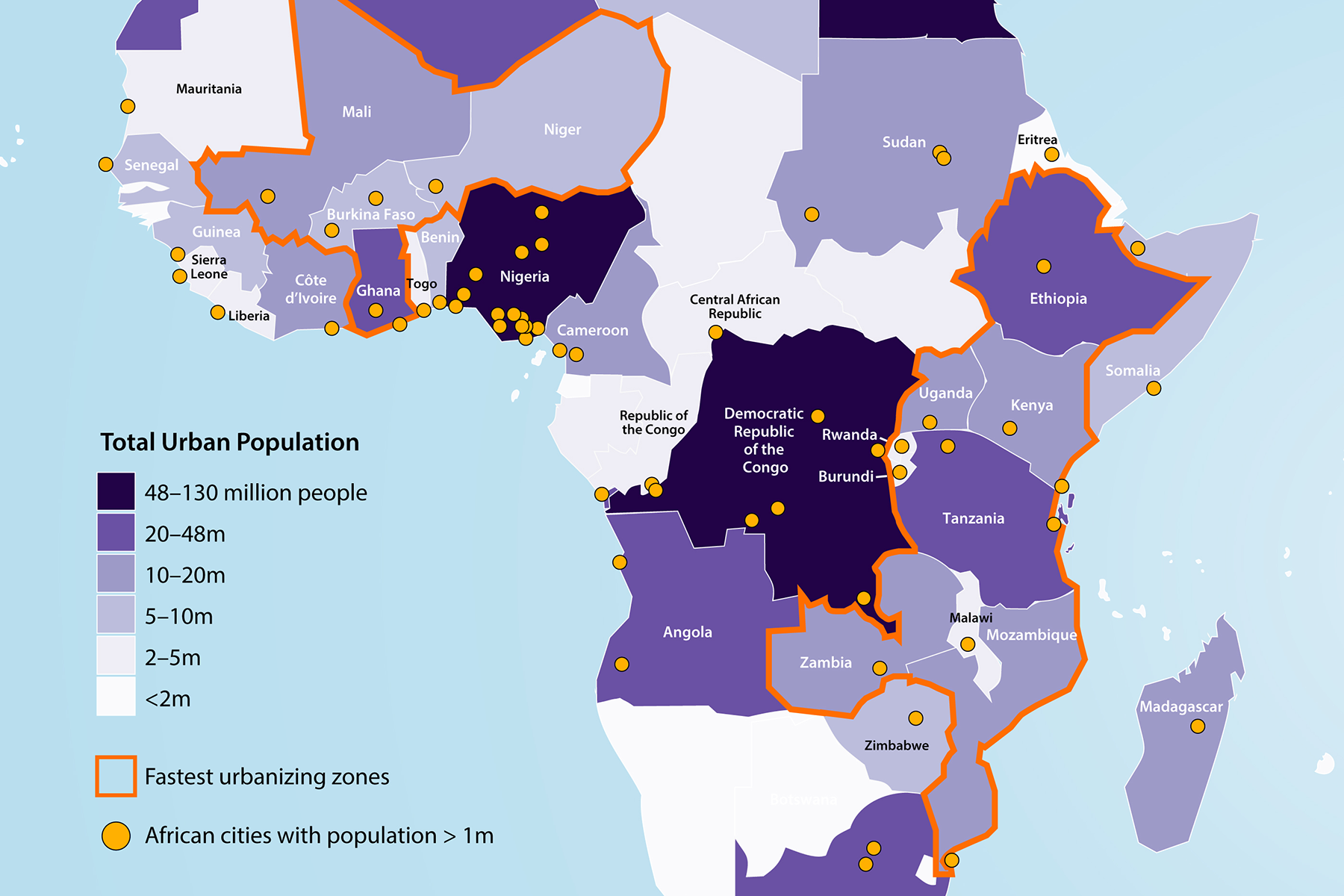
Infographic
Africa’s Unprecedented Urbanization is Shifting the Security Landscape
As Africa urbanizes at a record pace, national security policies will need to adjust to the changing geographic locus and types of threats in urban versus rural settings.
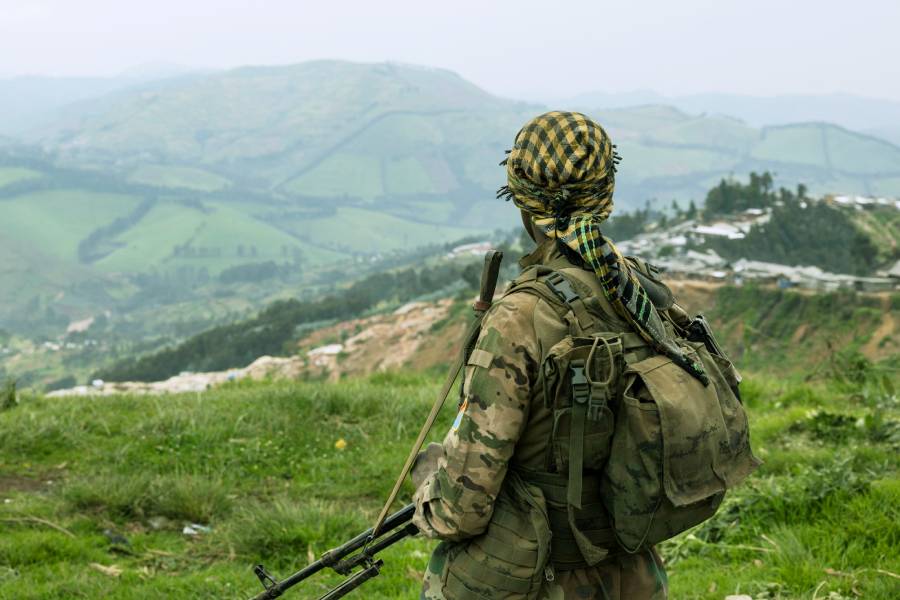
Spotlight
Lessons from the Inter-Congolese Dialogue for the DRC Crisis
The Inter-Congolese Dialogue that ended the Second Congo War offers a practical framework for responding to the current crisis in the Democratic Republic of Congo.
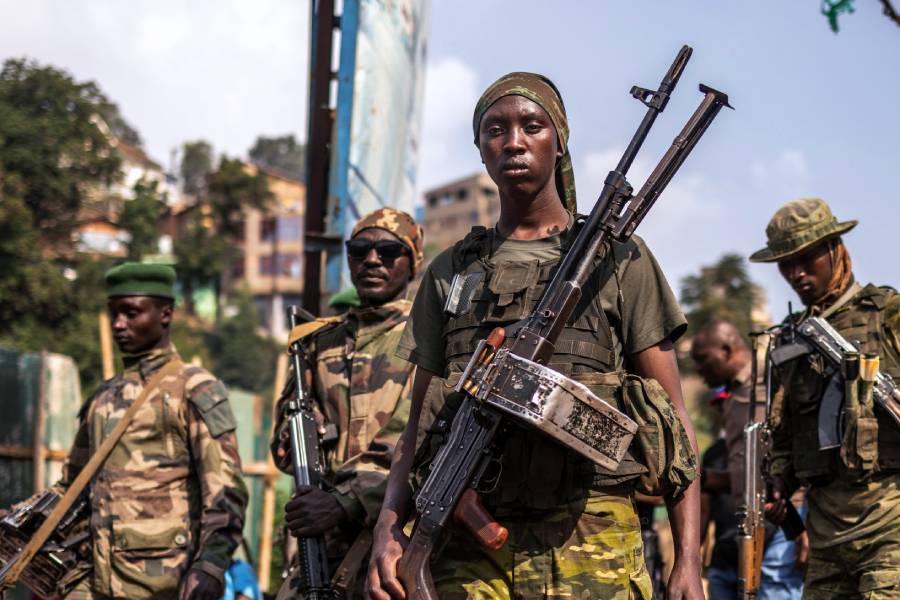
Spotlight
The DRC Conflict Enters a Dangerous New Phase
The regionalization of the Democratic Republic of the Congo crisis raises prospects for another multinational Congo War and the need for a robust African response.
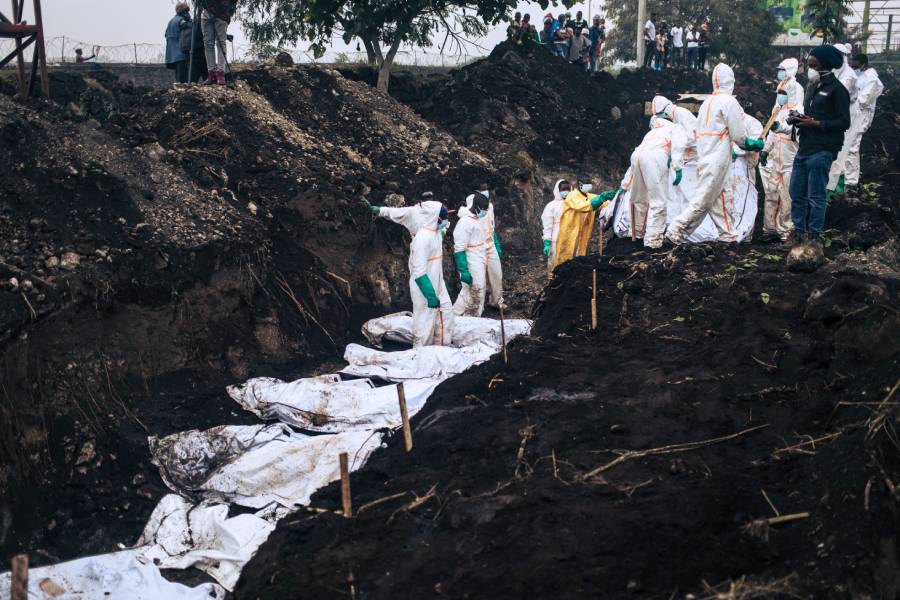
Spotlight
Risk of Regional Conflict Following Fall of Goma and M23 Offensive in the DRC
A shifting political calculus by sponsors of the M23 rebel group risks triggering another war in the Great Lakes Region, underscoring the importance of African mediators and global partners acting quickly to stem the fighting.
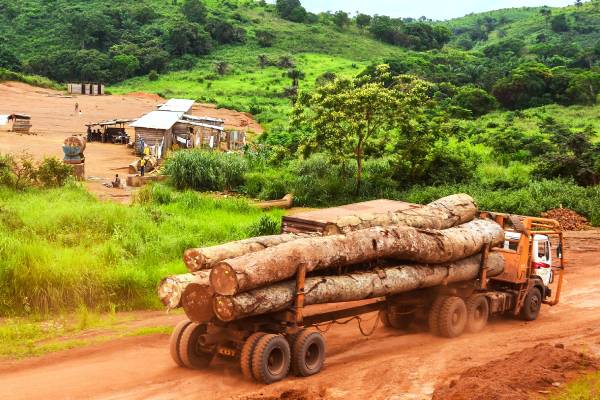
Publication
The Regional Security Imperative to Protect the Congo Basin
Unregulated logging of the Congo Basin rainforests threatens to undercut the livelihoods of millions of households in the region, empower transnational organized criminal networks, and disrupt water cycles in West Africa and the Nile River Basin.
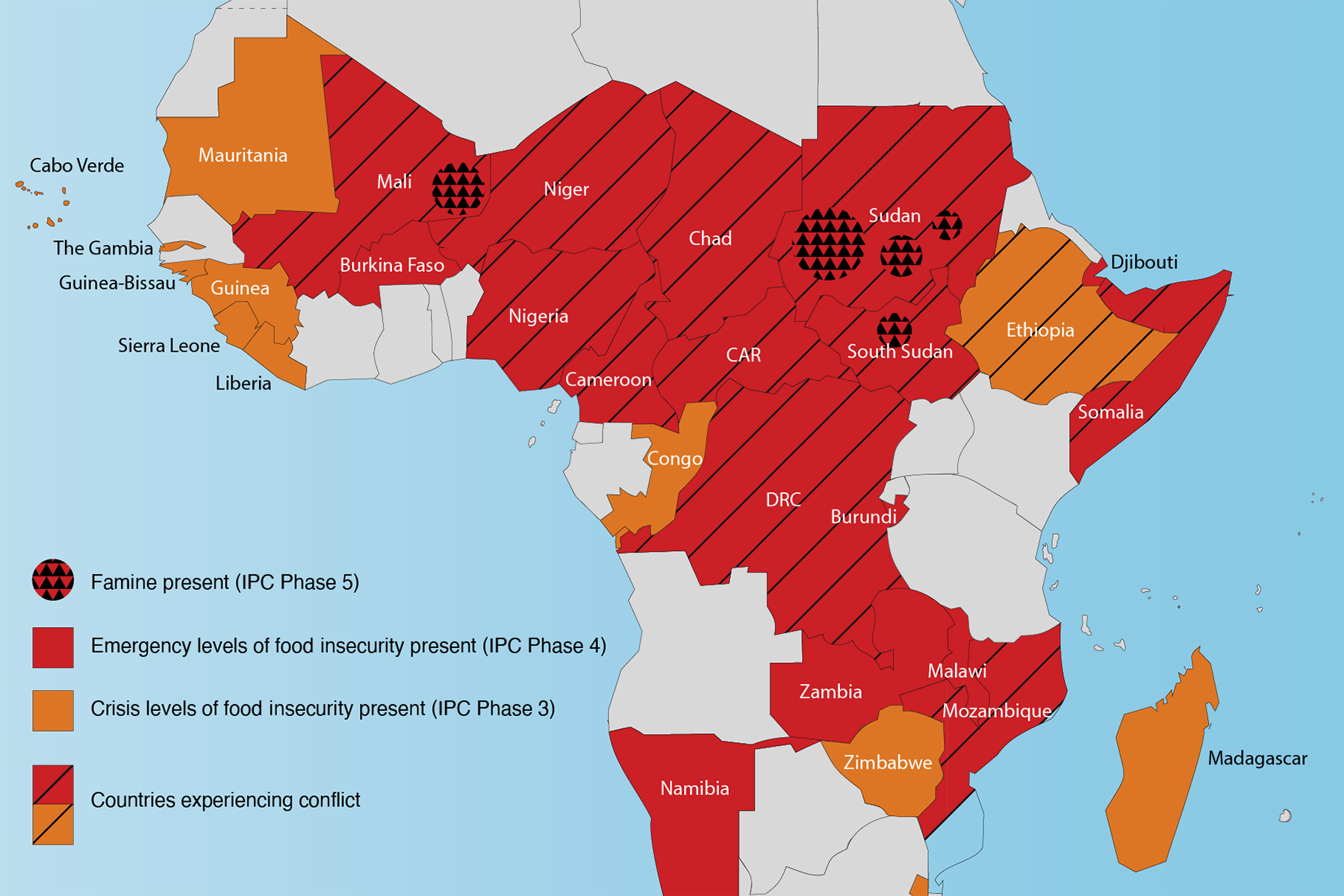
Infographic
Famine Takes Grip in Africa’s Prolonged Conflict Zones
Eighty percent of the record 163 million Africans facing acute food insecurity are in conflict-affected countries, including potentially 840,000 people confronting famine in Sudan, South Sudan, and Mali.

Infographic
Conflicts Causing Record Level of Forced Displacement in Africa
The number of African refugees, internally displaced persons, and asylum seekers grew by 14 percent over the past year—to more than 45 million people.
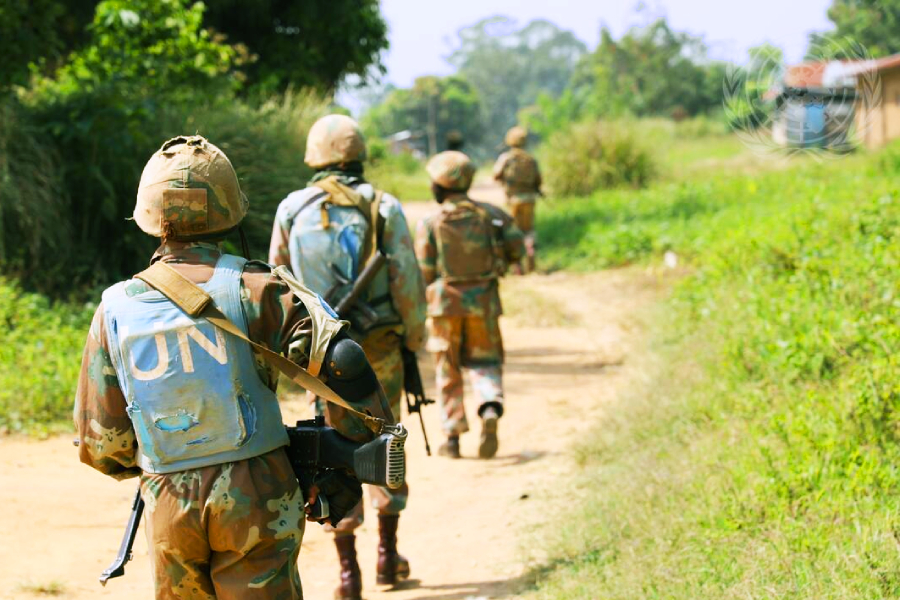
Spotlight
Understanding the Democratic Republic of the Congo’s Push for MONUSCO’s Departure
Many Congolese dread the withdrawal of UN peacekeepers, believing government forces are unable to provide security in the eastern DRC.
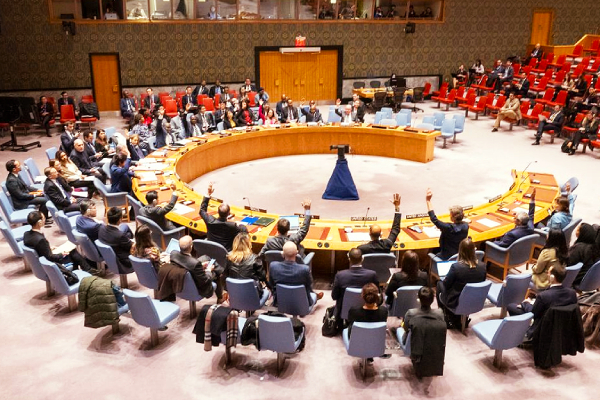
Spotlight
African Union and United Nations Partnership Key to the Future of Peace Operations in Africa
The use of United Nations–assessed contributions to support African Union–led peace operations has the potential to revitalize peace operations in Africa.
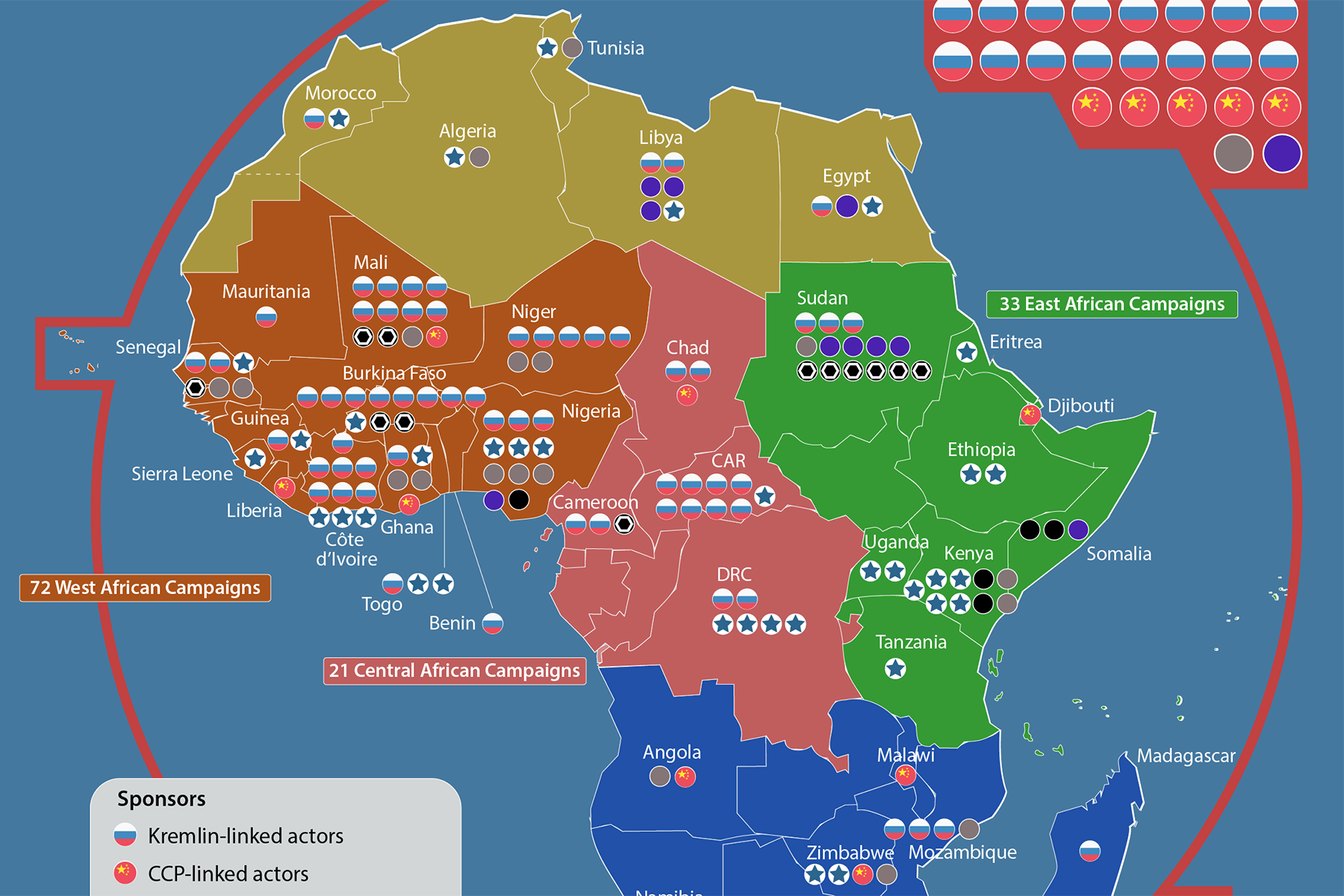
Infographic
Mapping a Surge of Disinformation in Africa
Disinformation campaigns seeking to manipulate African information systems have surged nearly fourfold since 2022, triggering destabilizing and antidemocratic consequences.
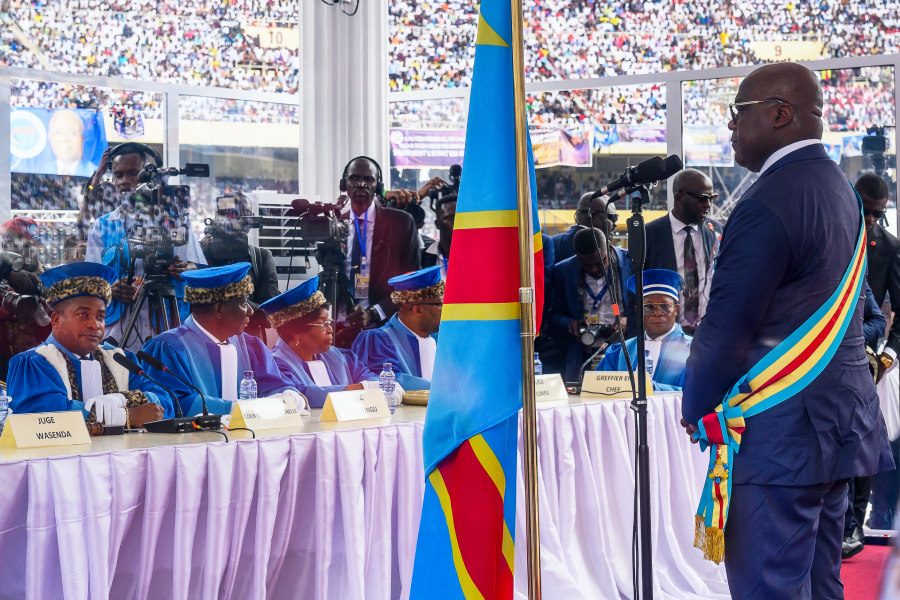
Spotlight
Regime Capture of the Courts in Africa
By co-opting apex courts, incumbents bent on regime survival can entrench themselves in power while maintaining what their citizens consider to be sham democracies.
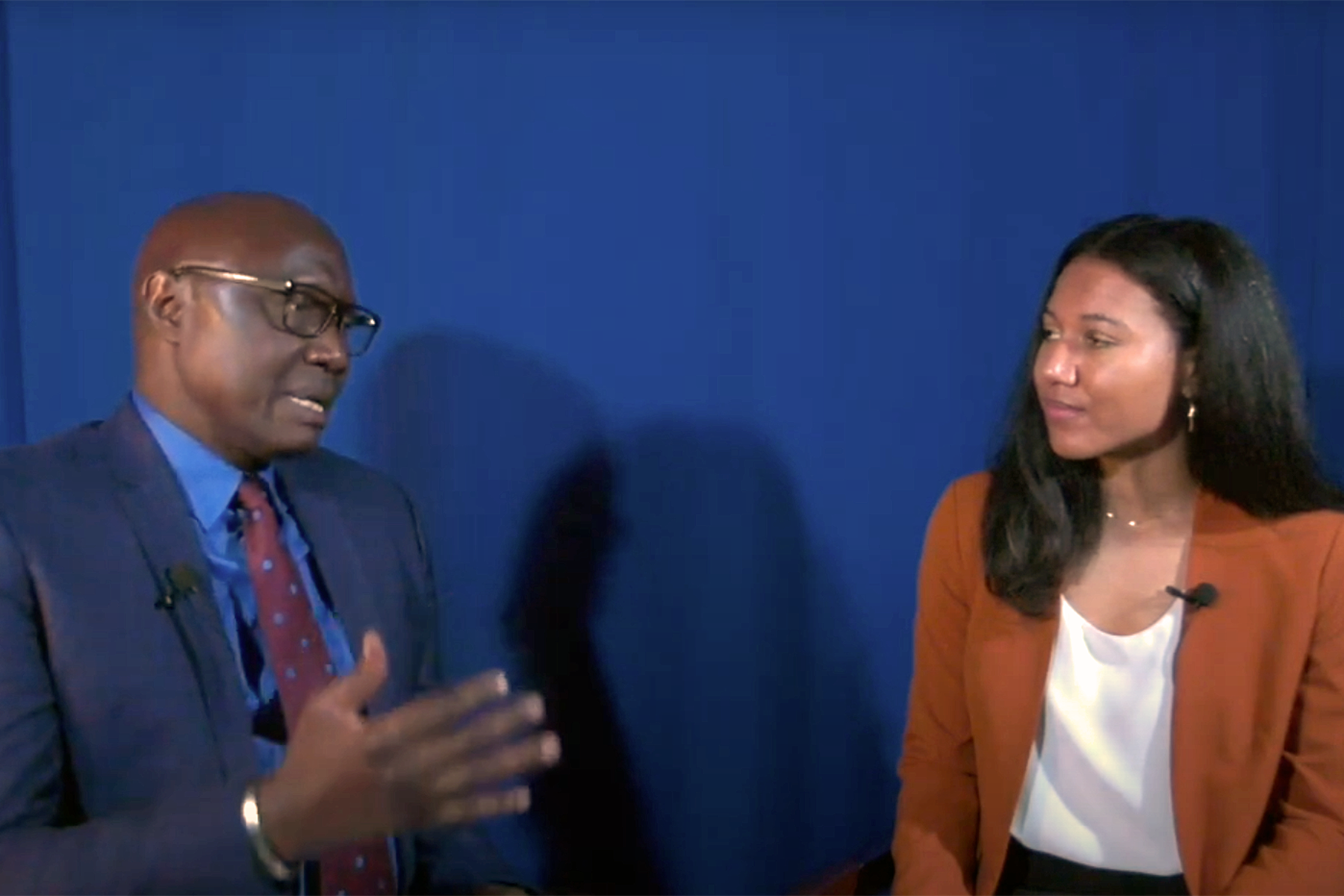
Video
The State of United Nations Peacekeeping Operations in Africa
General Birame Diop assesses the challenging trends facing UN peacekeeping operations in Africa, including loss of host country support, disinformation, and increasingly brazen violent nonstate actors.
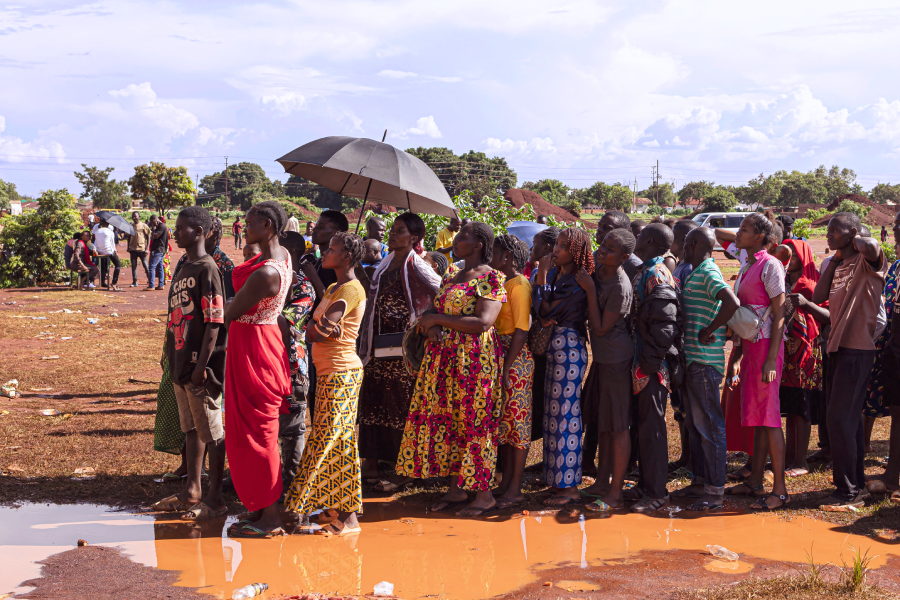
Spotlight
Elections in the Democratic Republic of the Congo: A Persistent Crisis of Legitimacy
The Democratic Republic of the Congo’s chaotic elections failed to break the country’s long legacy of fraudulent polls and plunged the government into a fresh crisis of legitimacy.
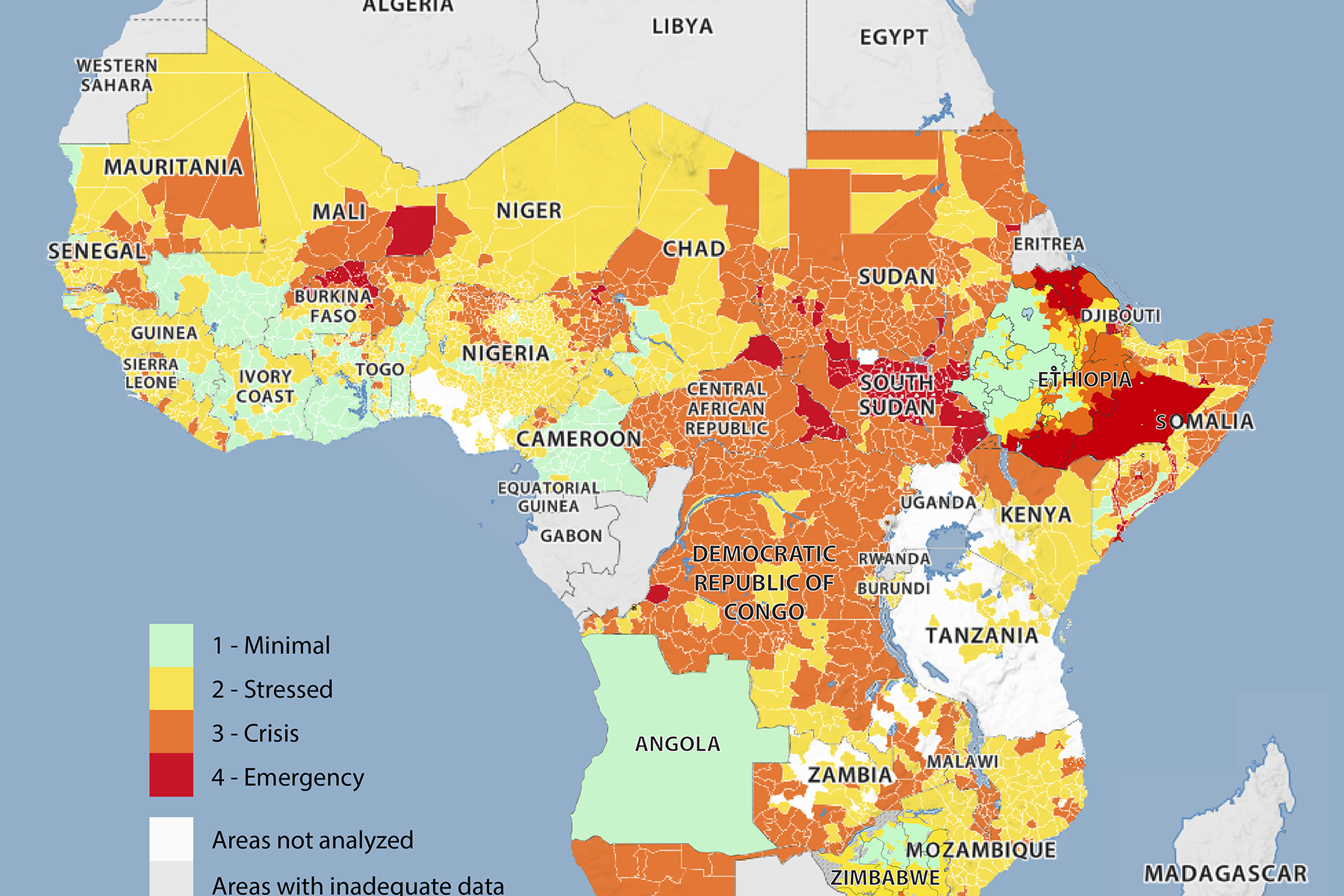
Infographic
Unresolved Conflicts Continue to Drive Africa’s Food Crisis
An estimated 82 percent of the record 149 million Africans facing acute food insecurity are in conflict-affected countries underscoring that conflict continues to be the primary driver of Africa’s food crisis.
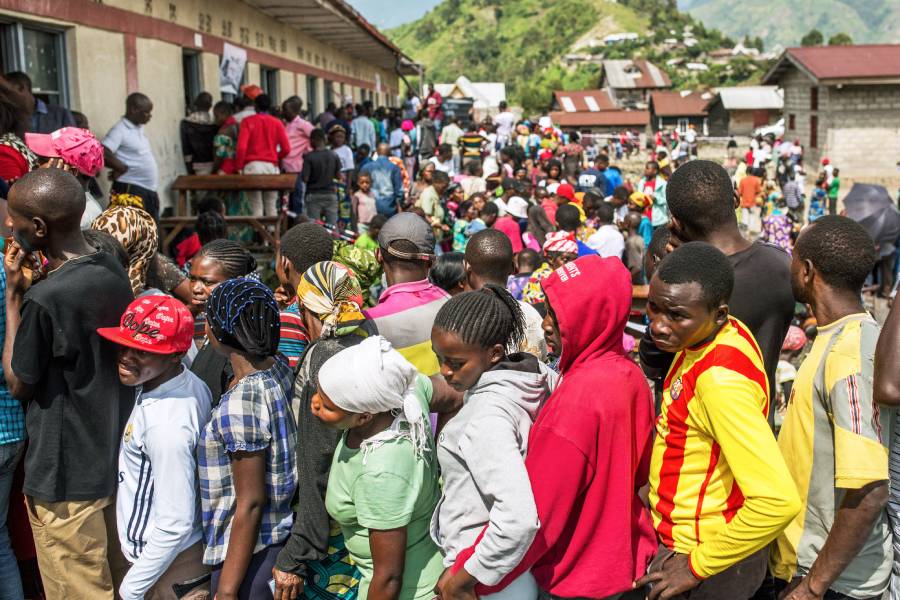
Spotlight
The Democratic Republic of the Congo’s Quest for Democracy Faces a New Test
To break the Democratic Republic of the Congo’s long legacy of stolen elections, the country’s independent oversight institutions, civil society, and media will need the backing of SADC and international democratic actors.
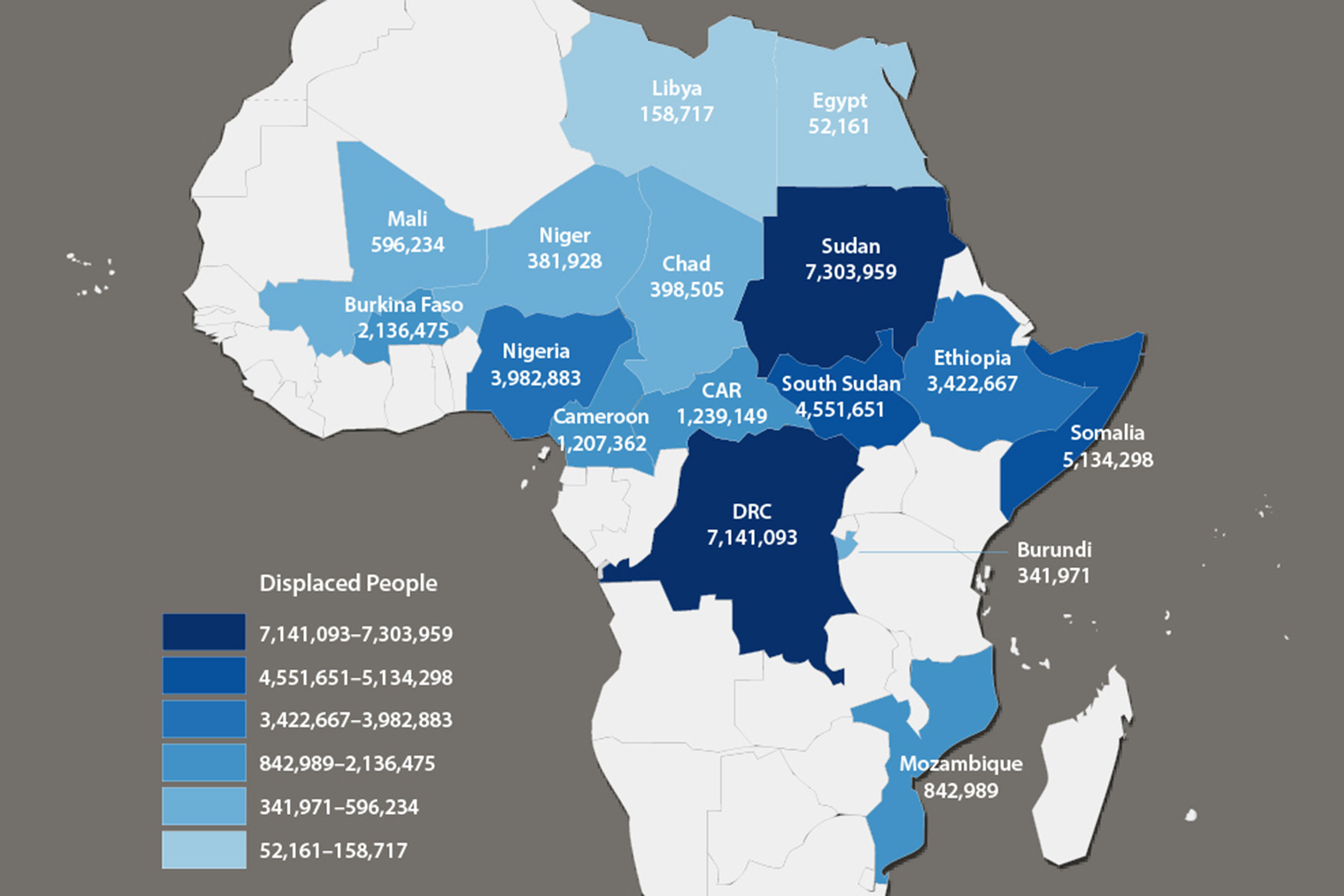
Infographic
African Conflicts Displace Over 40 Million People
Continuing a decade long trend, the number of Africans who are forcibly displaced has risen over the past year and now totals over 40 million people.
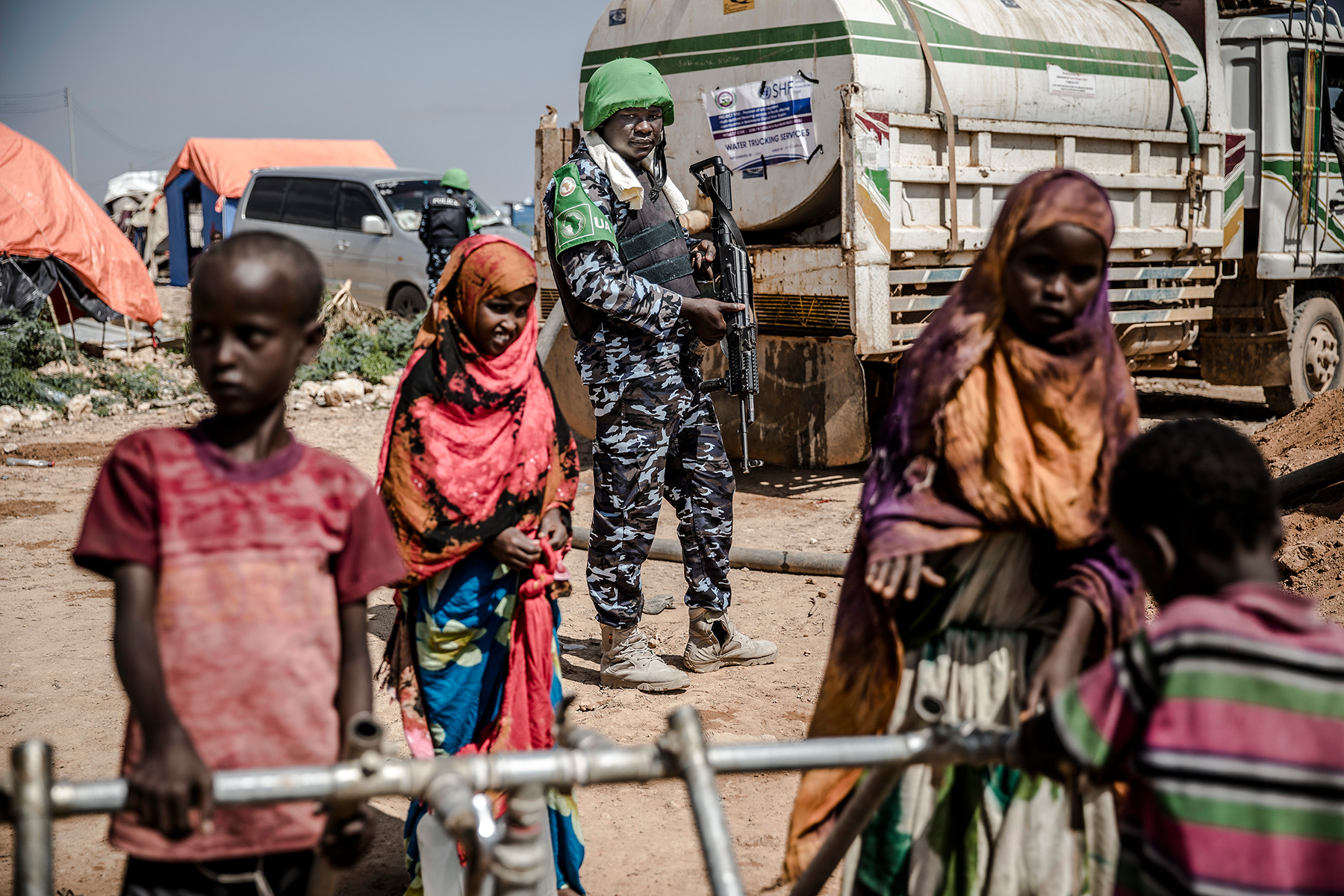
Spotlight
African-Led Peace Operations: A Crucial Tool for Peace and Security
African-led peace operations have been vital tools for managing Africa’s complex array of security challenges, though continued reform is needed to intervene more decisively in the continent’s most devastating conflicts.
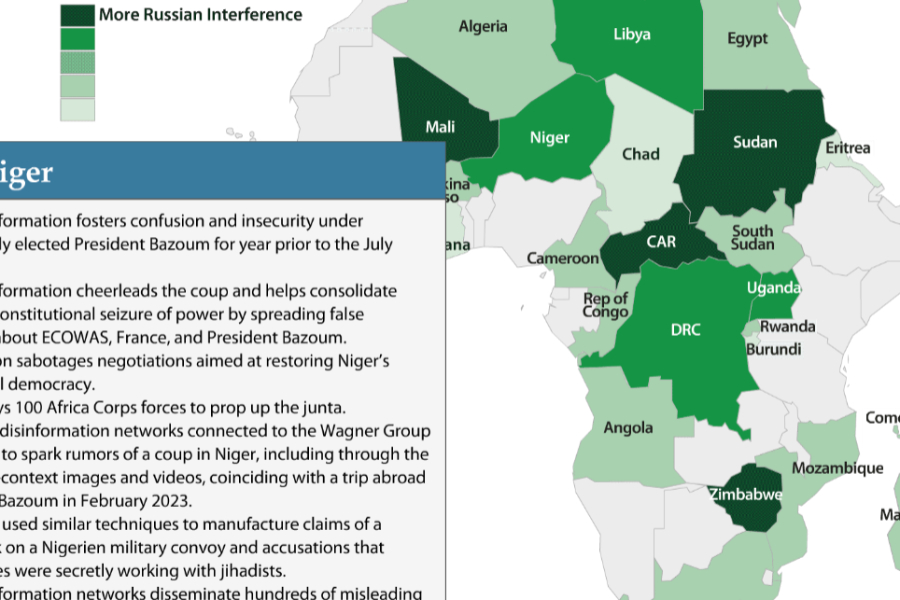
Infographic
Tracking Russian Interference to Derail Democracy in Africa
Systematic efforts by Russia to undercut democracy in Africa have inhibited democratic development in two dozen African countries.
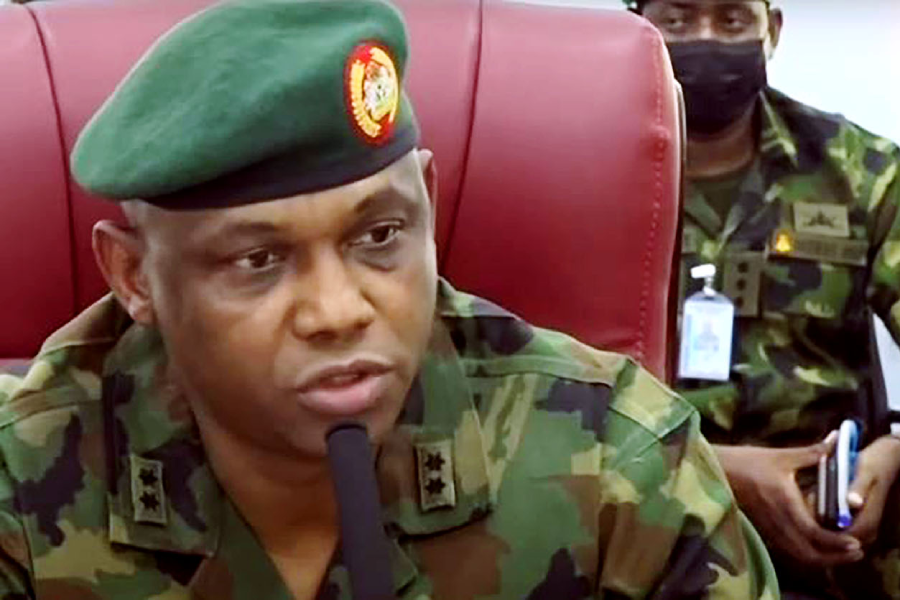
Spotlight
Parliamentary committees that oversee the security sector play an essential role in building accountable, sustainable, transparent, and professional institutions.
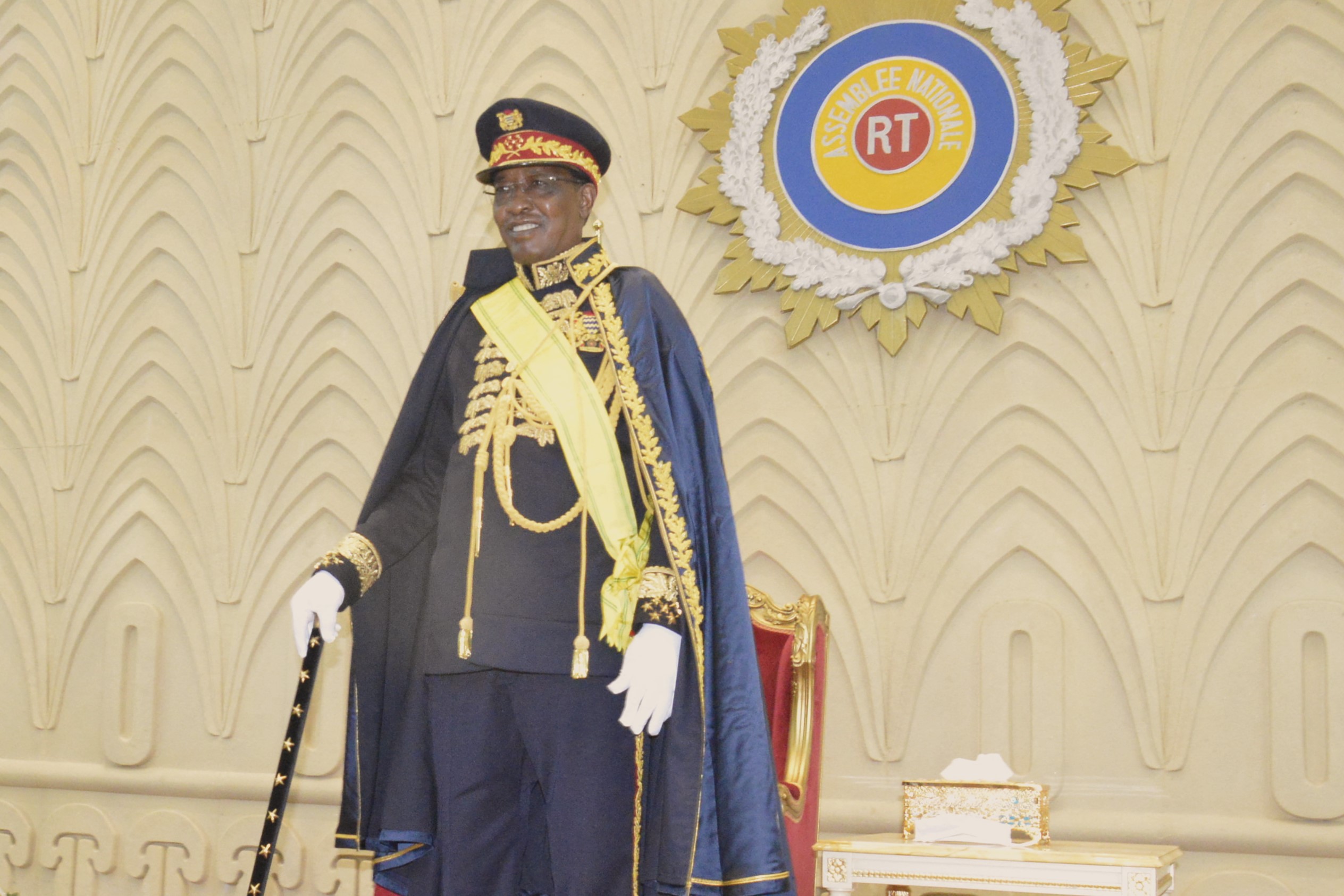
Spotlight
The Persistence of Cults of Personality in African Governance
African leaders who hold power indefinitely often employ cults of personality to consolidate power, demand personal fealty, and systematically undermine independent governance institutions.
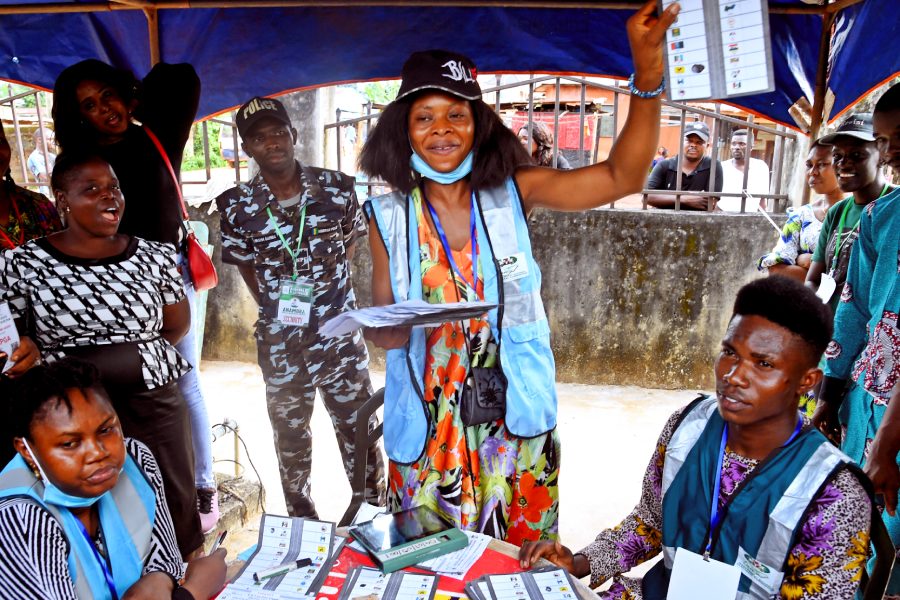
Spotlight
Africa’s 2023 Elections: Democratic Resiliency in the Face of Trials
Despite serious challenges, Africa's youthful electorates vie to have their voices heard so as to shape a more democratic, stable, and prosperous future.
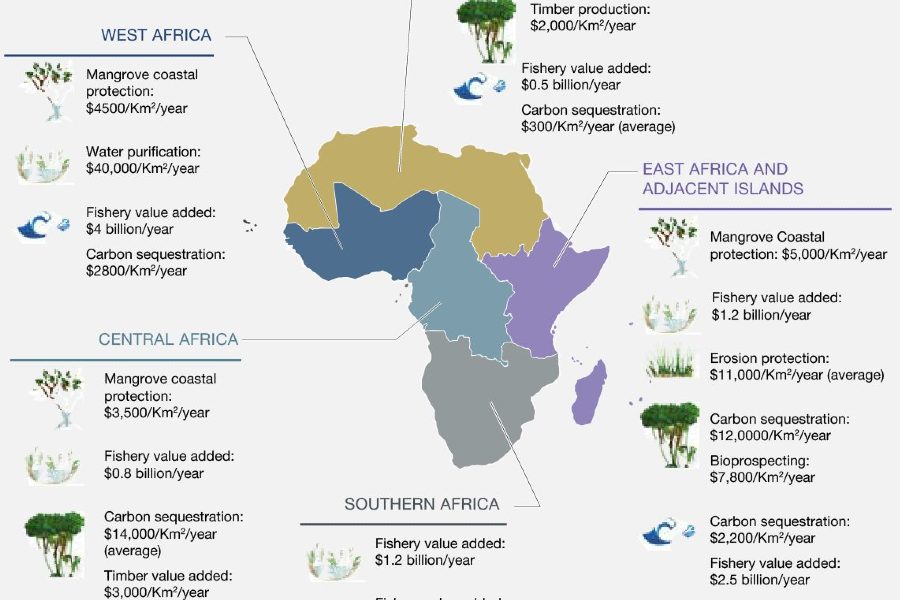
Infographic
African Biodiversity Loss Raises Risk to Human Security
Declines in Africa’s rich ecological biodiversity threaten millions of livelihoods, increased food insecurity, conflicts over land, and transmission of zoonotic diseases that can lead to more pandemics.
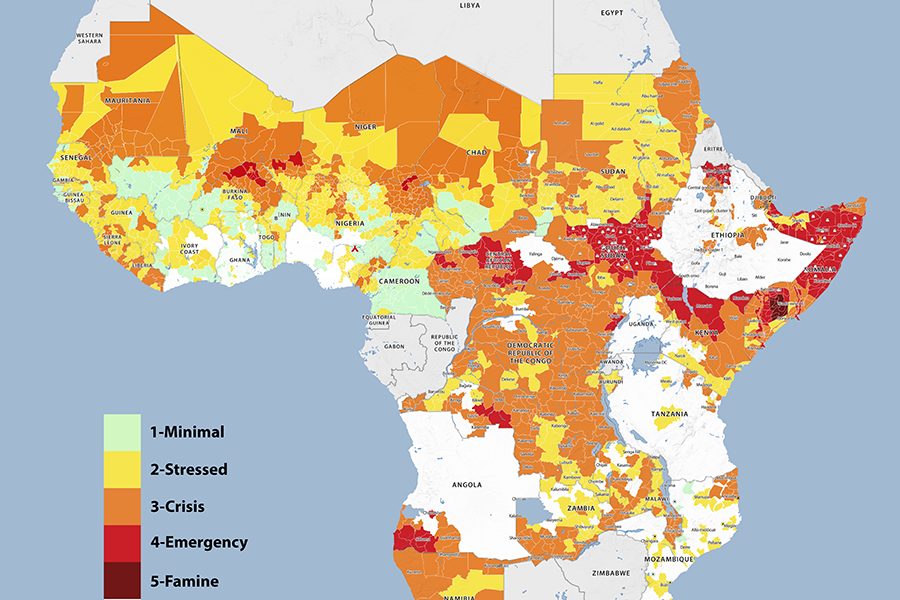
Infographic
Conflict Remains the Dominant Driver of Africa’s Spiraling Food Crisis
More than 80 percent of the record 137 million Africans facing acute food insecurity are in conflict-affected countries underscoring that conflict continues to be the primary driver of Africa’s food crisis.
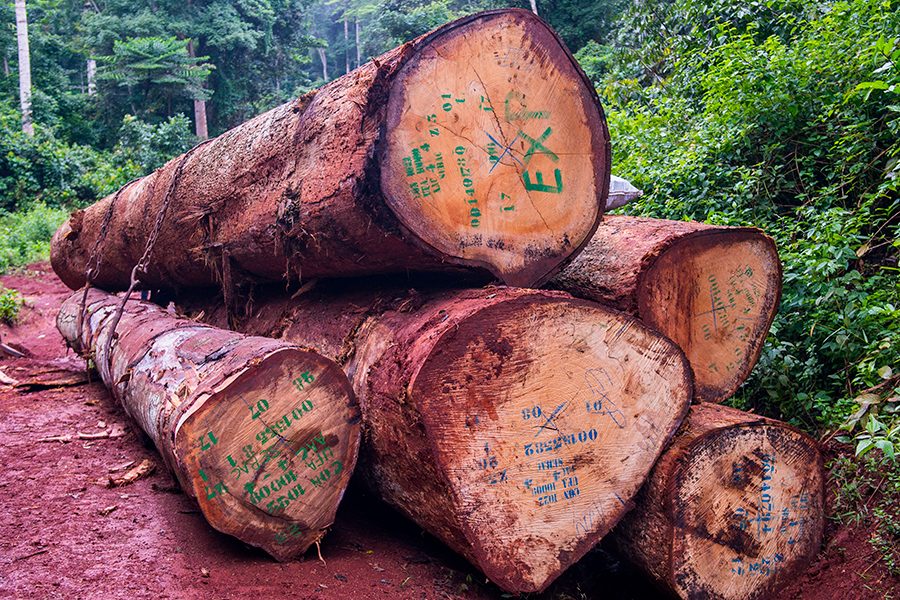
Spotlight
Illegal Logging in Africa and Its Security Implications
Illegal logging is a growing feature of transnational organized crime in Africa, often facilitated by the collusion of senior officials, with far-reaching security and environmental implications for the countries affected.
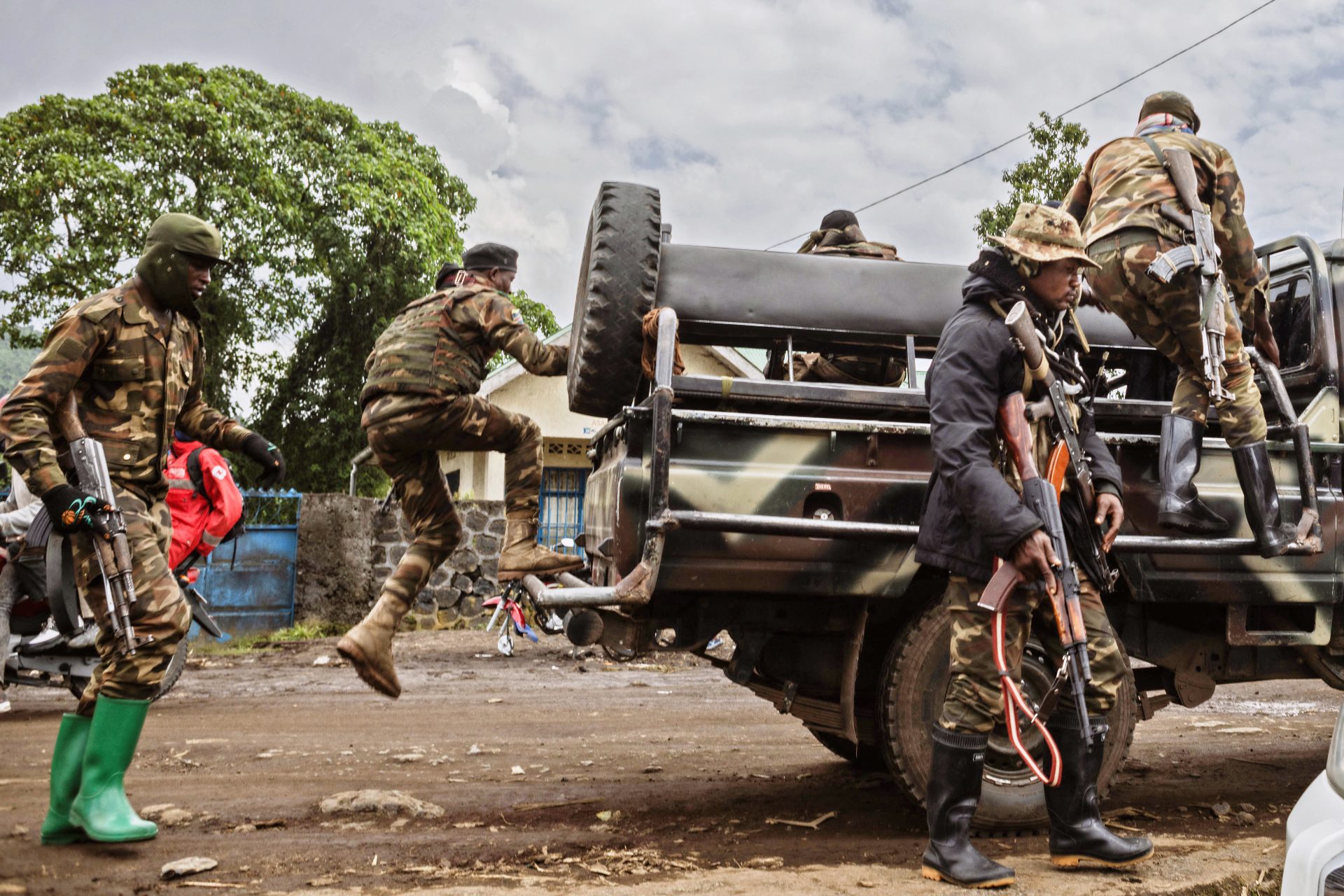
Spotlight
Rwanda and the DRC at Risk of War as New M23 Rebellion Emerges: An Explainer
The seeming rapid deterioration of security in the eastern DRC and resurgence of M23 are an outcome of longstanding regional rivalries between Rwanda and Uganda.
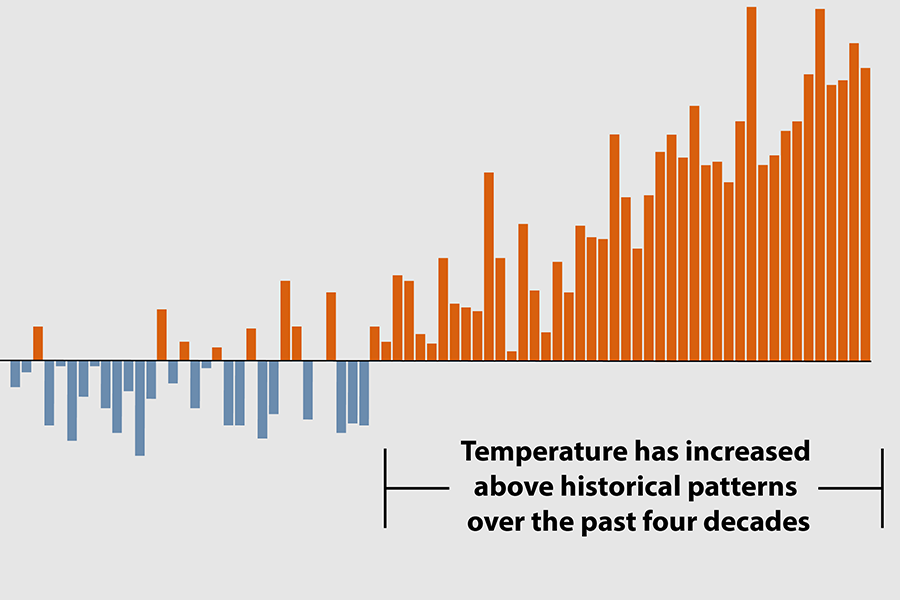
Infographic
Extended Heat Waves Threatening Human Security in Africa
Rising temperatures are contributing to more and extended heat waves, a tripling of droughts, a quadrupling of storms, and a tenfold increase in flooding in Africa since the 1970s—exacerbating security threats on the continent.
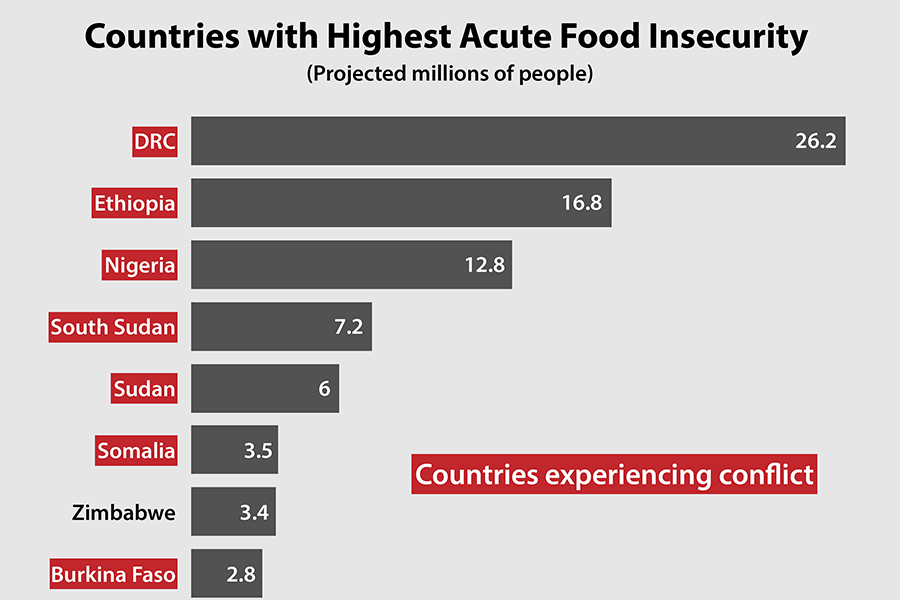
Video
Conflict Drives Record Levels of Acute Food Insecurity in Africa
Conflict remains the primary driver of acute food insecurity in Africa, imperiling over 100 million people.
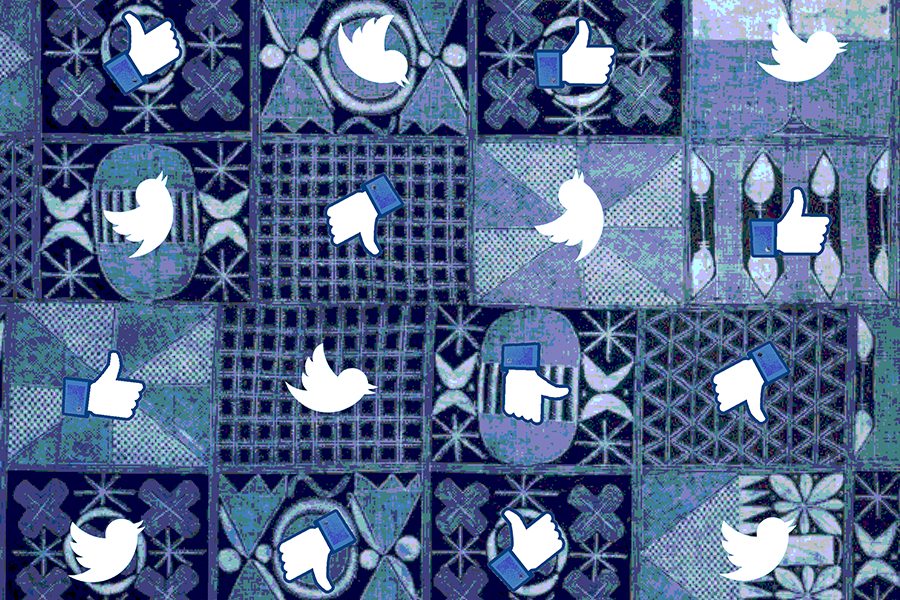
Spotlight
Domestic Disinformation on the Rise in Africa
A growing trend of domestic political actors deploying targeted disinformation schemes requires expanded fact-checking capacity in Africa and collaboration with social media organizations.
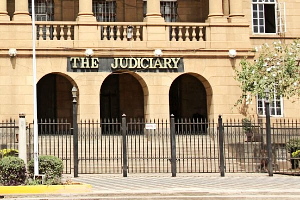
Spotlight
Justice and Rule of Law Key to African Security
The integration of justice initiatives within conventional security efforts can mitigate conflict, improve societal resilience, and build a stronger culture supportive of the rule of law.
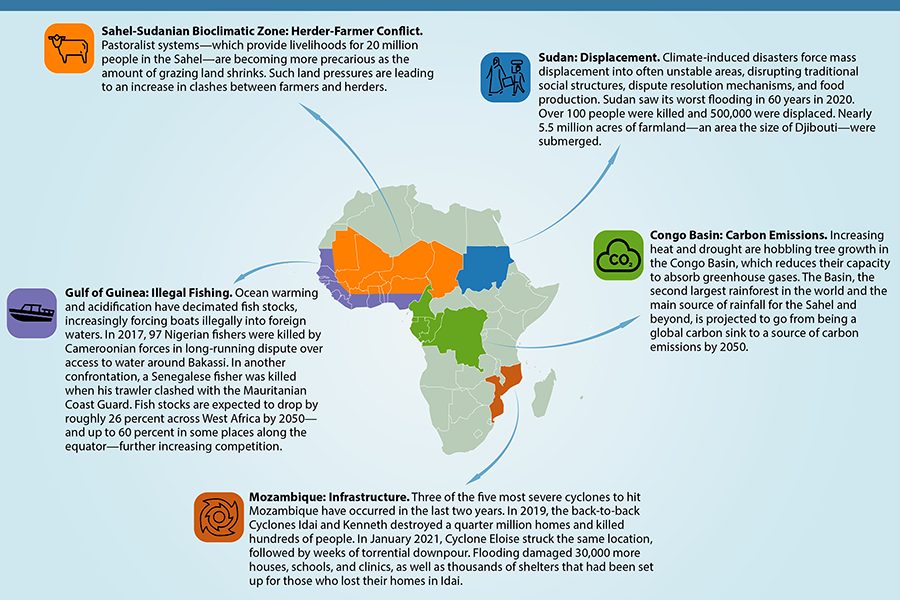
Infographic
Rising Temperatures Amplify Instability in Africa
Rising temperatures are straining livelihoods across broad swaths of Africa, intensifying instability in multifaceted ways. The continent’s ability to adapt to and mitigate these effects will have global repercussions.
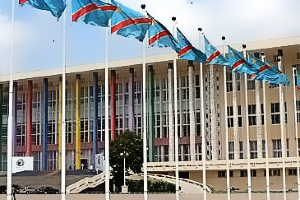
Spotlight
Power Shift in the DRC Cracks open a Door to Reform
A shift in the balance of power within the National Assembly enhances the influence of President Felix Tshisekedi and represents a step toward long-delayed democratic reforms.
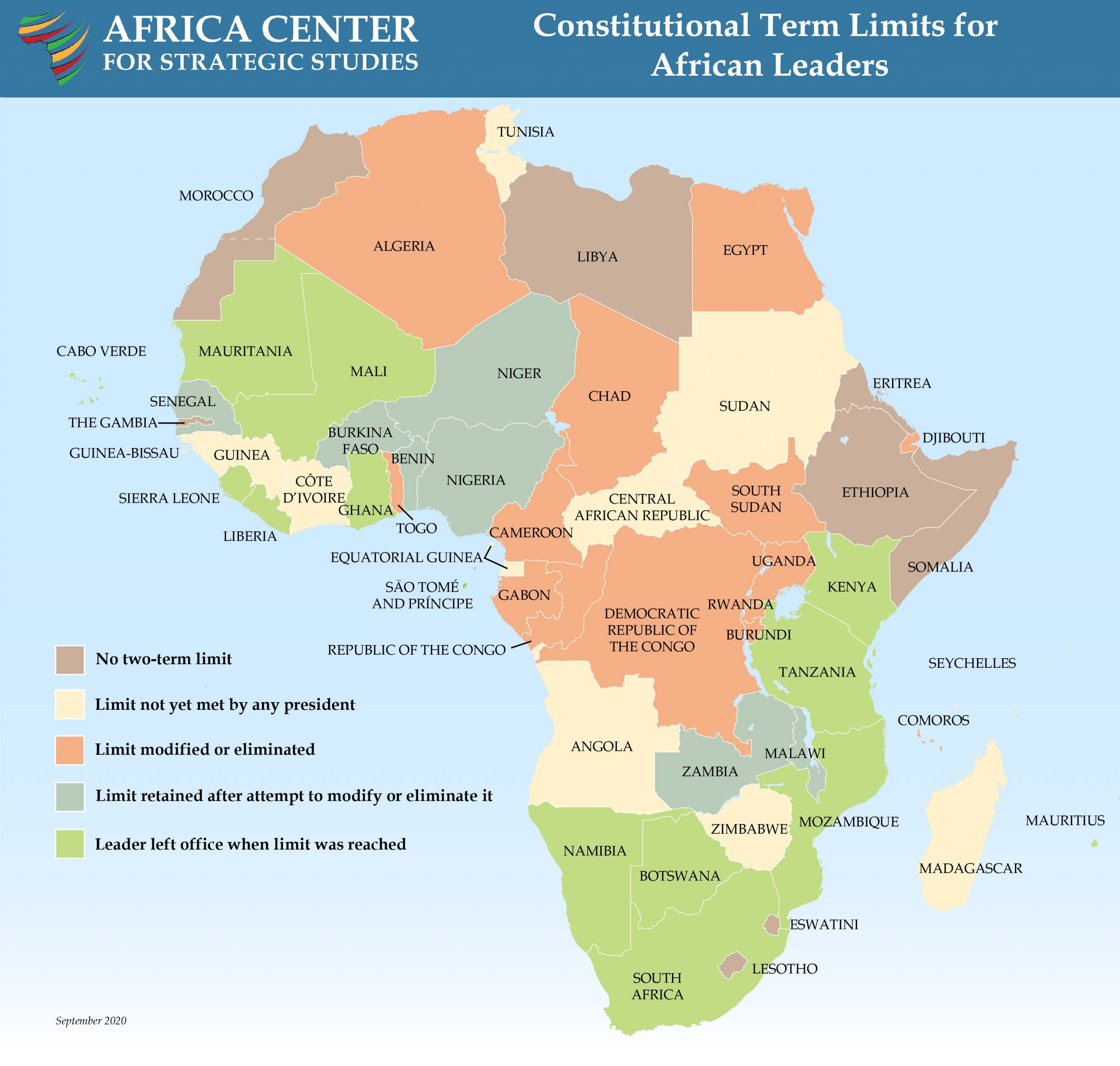
Infographic
Circumvention of Term Limits Weakens Governance in Africa
A growing pattern of evading term limits in Africa carries far-reaching consequences for the continent’s governance, security, and development.
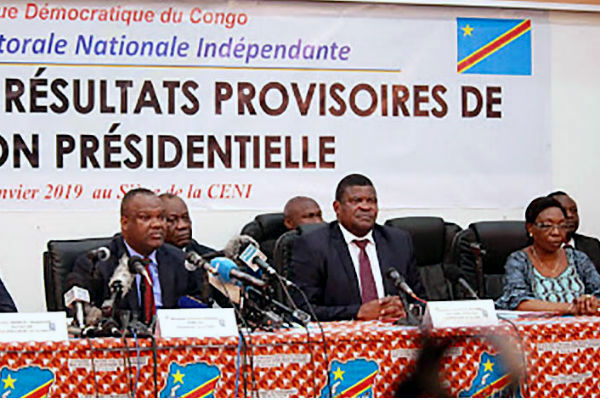
Spotlight
DRC Election Results Suggest a Rare Chance for Change
Civic action has been vital to reach a historic outcome, however, many challenges remain to achieve a genuine democratic transition.
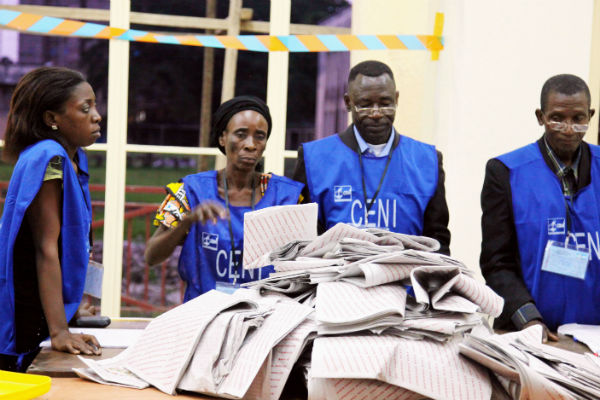
Spotlight
Elections in the Democratic Republic of the Congo Falling Short of Credible
The DRC's general elections originally scheduled for December 23, two years overdue, face serious credibility challenges. The repercussions of a faulty vote could further dampen the prospects for improved security and stability in the region and erode democratic norms across the continent.
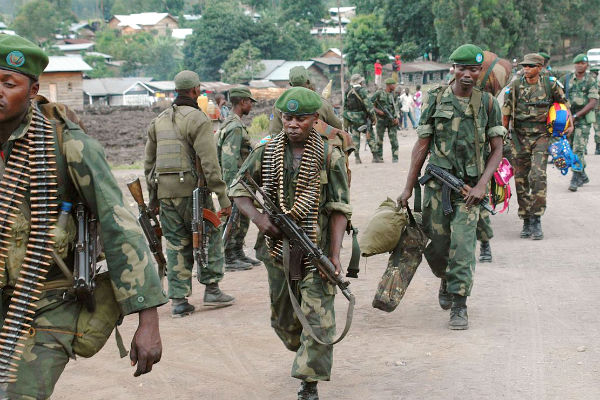
Spotlight
Stability in the Democratic Republic of the Congo beyond the Elections
Joseph Kabila seeks to maintain the status quo as the Democratic Republic of the Congo enters a transition amid growing instability.
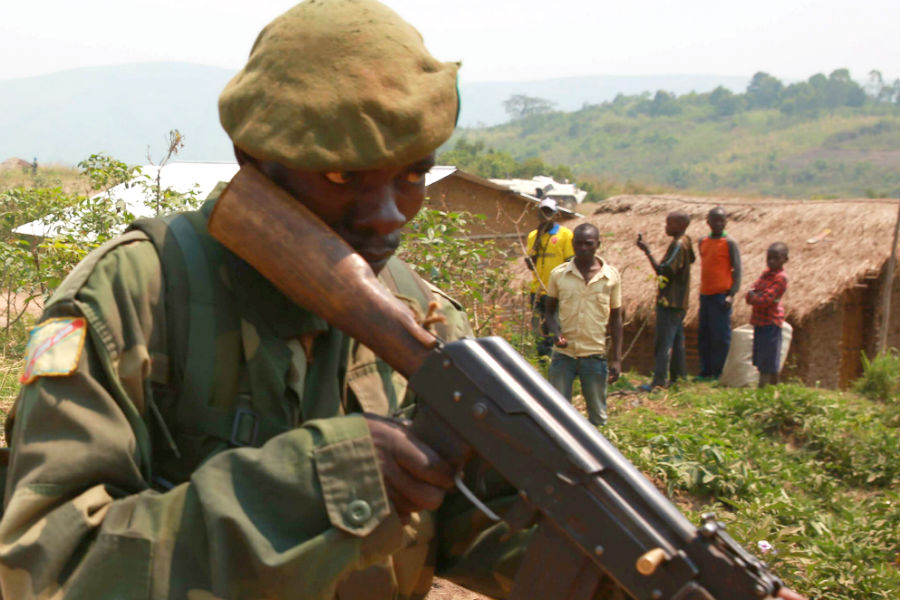
Spotlight
Ituri Becomes Congo’s Latest Flashpoint
The DRC’s ongoing political crisis is straining local peace agreements forged after the Second Congo War, threatening wider instability.
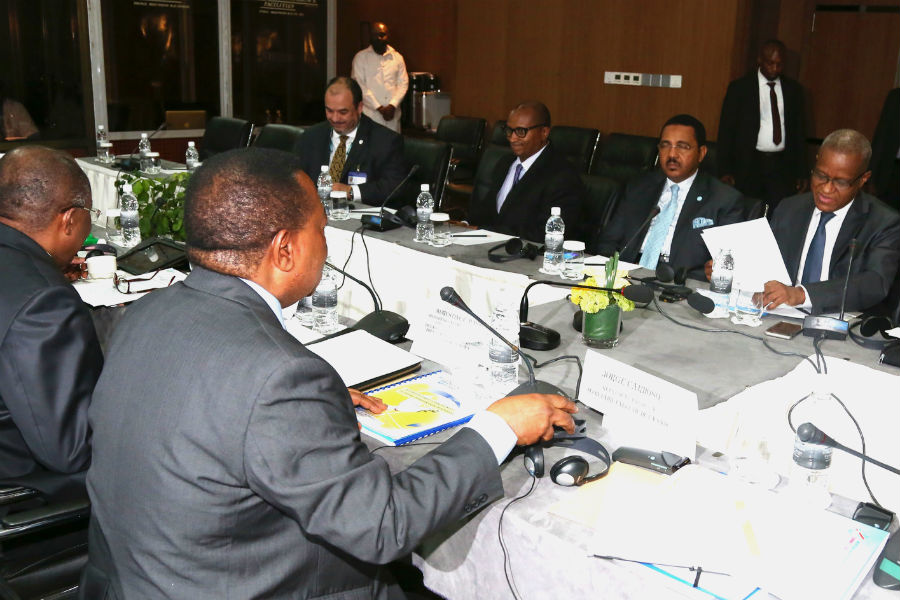
Spotlight
When Peace Agreements Fail: Lessons from Lesotho, Burundi, and DRC
Conflicts in Africa often reflect a breakdown of peace agreements that have been methodically dismantled by politicians intent on evading checks on power while oversight is weak. Vigilance is vital as early progress is not a guarantee of long-term success.
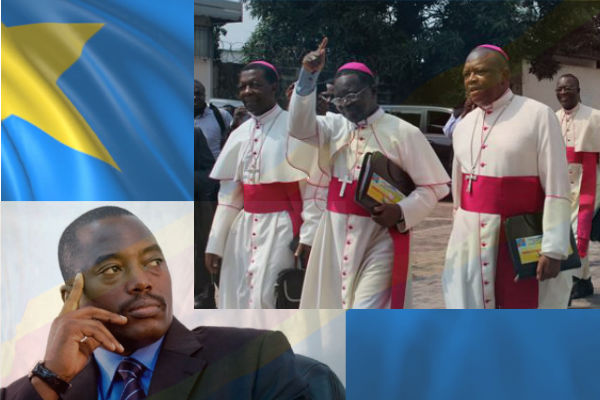
Spotlight
Catholic Church Increasingly Targeted by Government Violence in the DRC
The Catholic Church is at the forefront of organizing protests demanding elections in the DRC, despite government intimidation.
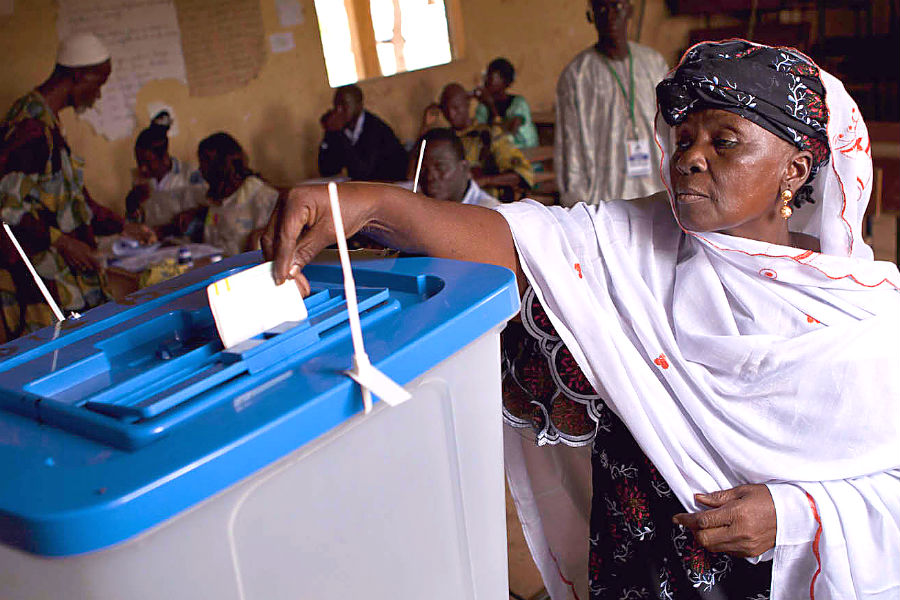
Spotlight
Africa’s Most Challenging Elections in 2018
Twenty countries in Africa will hold national elections in 2018. This analysis reviews countries facing unique challenges to holding peaceful elections on the continent.
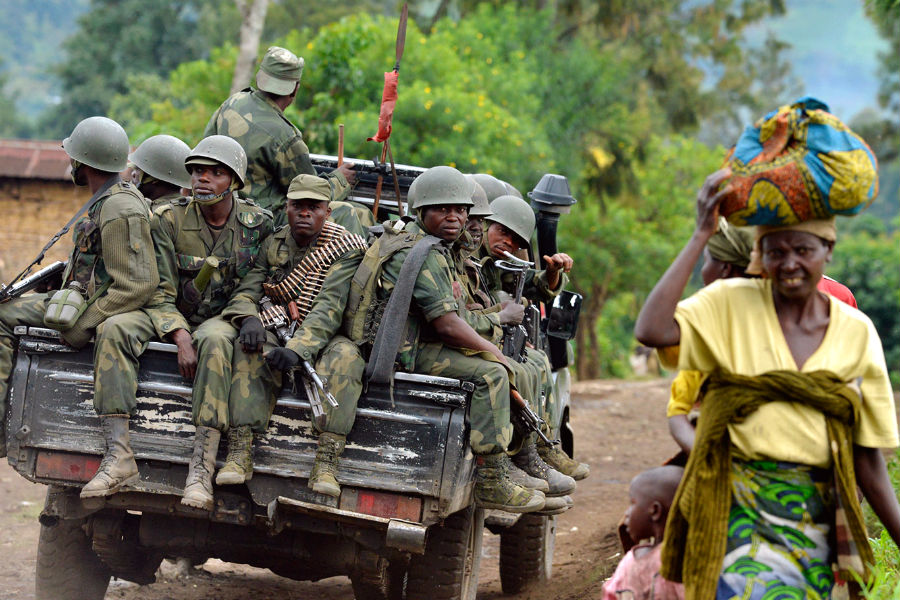
Spotlight
A Medley of Armed Groups Play on Congo’s Crisis
The DRC’s political crisis has galvanized and revived many of the estimated 70 armed groups currently active in the country, making the nexus between political and sectarian violence by armed militias a key feature of the DRC’s political instability.
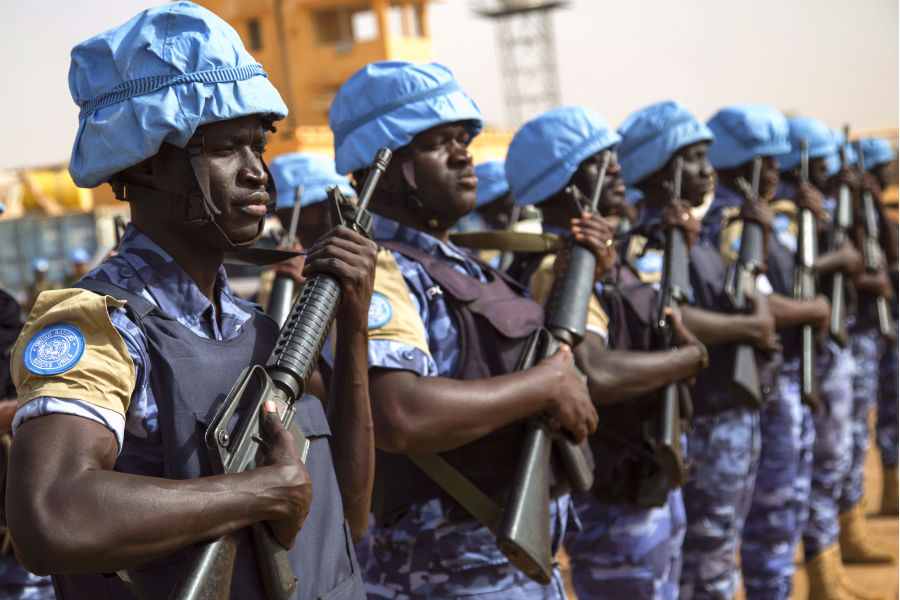
Spotlight
Peacekeeping Crucial for African Stability
Despite their shortcomings, African peace operations have saved lives, built security sector capacity, and helped mitigate conflict—reducing pressure on international actors to become directly involved.
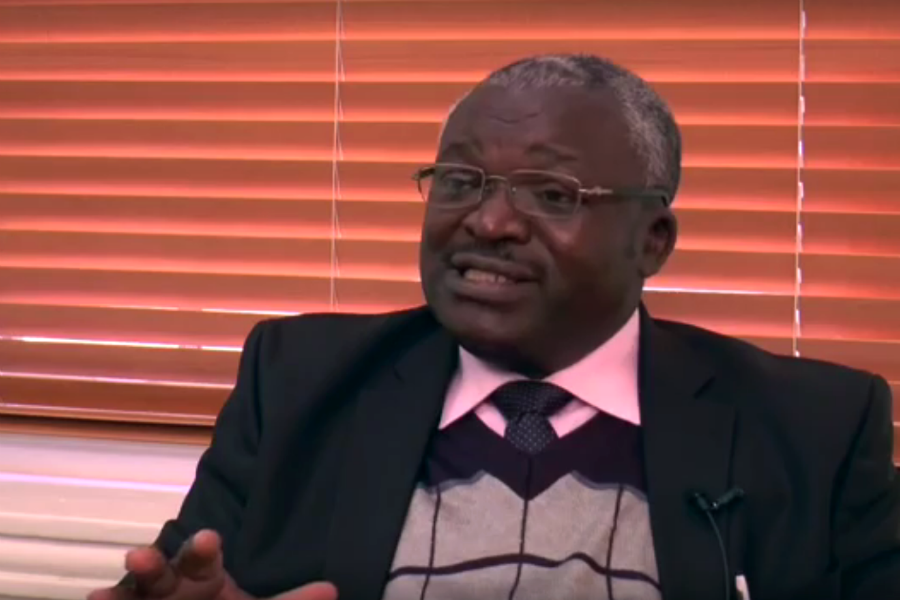
Spotlight
Interview: Prospects for Peace in the DRC
John Katunga, senior technical advisor for peacebuilding at Catholic Relief Services, discusses the status of the DRC's peace process and the role of external actors in the negotiations.
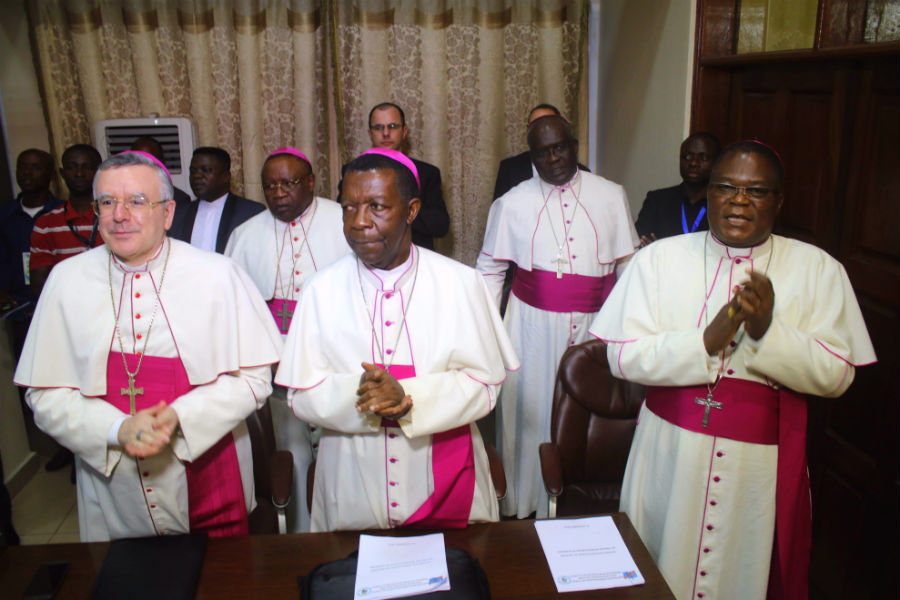
Spotlight
The Role of External Actors in the DRC Crisis
Part 5. In previous DRC’s political crises, international and African actors have at some times been a moderating influence, and at others enabled further escalation. What role are they playing this time?
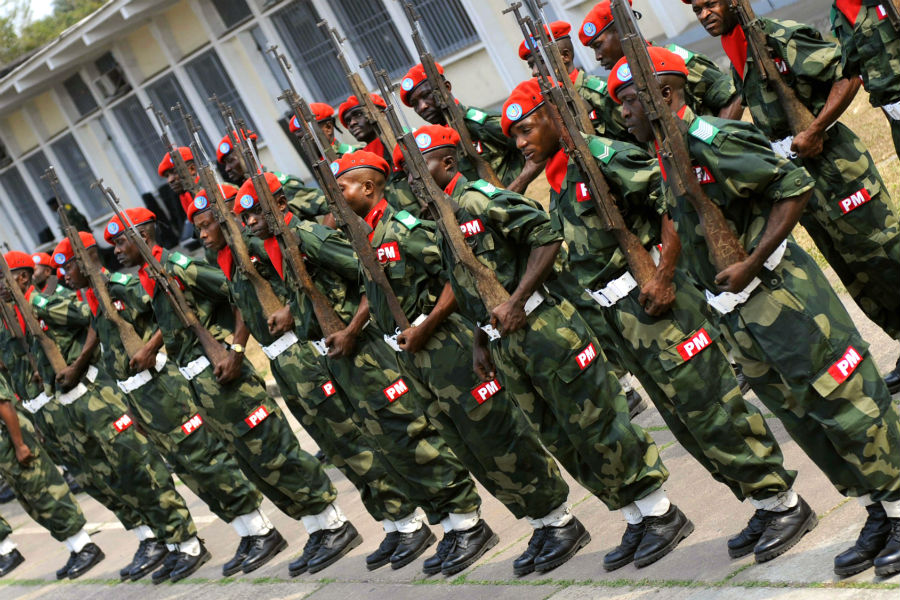
Spotlight
Security Sector Institutions and the DRC’s Political Crisis
Part 4. Now that President Kabila has crossed the threshold of his two-term limit without securing a new mandate, the security sector will be instrumental in navigating the mounting political crisis.
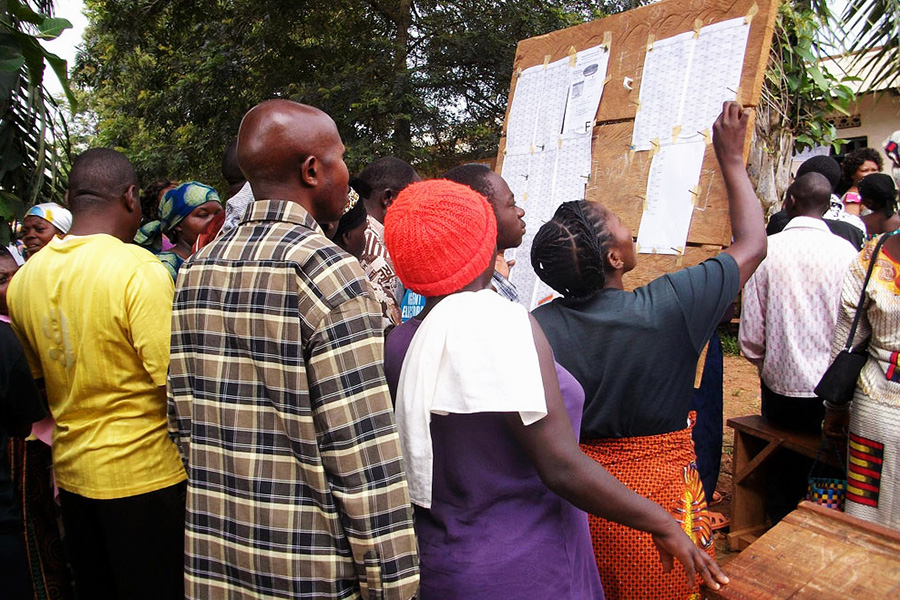
Spotlight
The Role of Civil Society in Averting Instability in the DRC
Part 3. The DRC’s nascent institutional checks and balances are too weak to curb executive overreach. And when state institutions are compromised, reform must come from the outside.
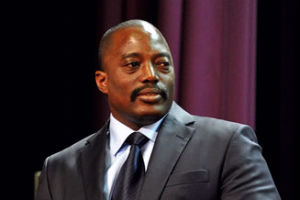
Spotlight
Changing the Political Calculus
African leaders have tried many different ways to evade term limits in recent years. The tack taken by Joseph Kabila is particularly straightforward—and brazen. He is simply avoiding holding elections for his successor altogether.
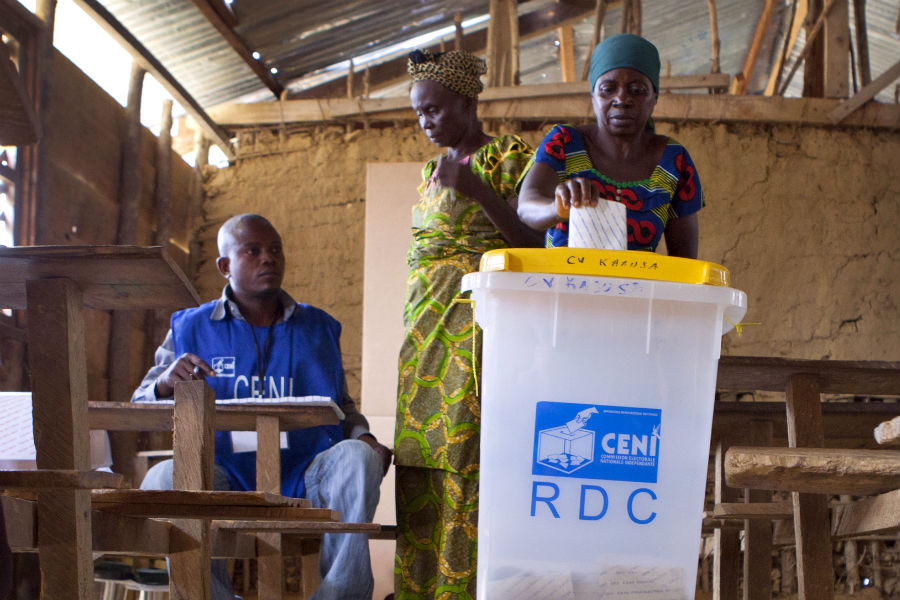
Spotlight
The DRC’s Oversight Institutions: How Independent?
Part 2. The DRC’s oversight institutions have been actively undermined by the ruling party, dimming prospects for a genuine democratic transition.
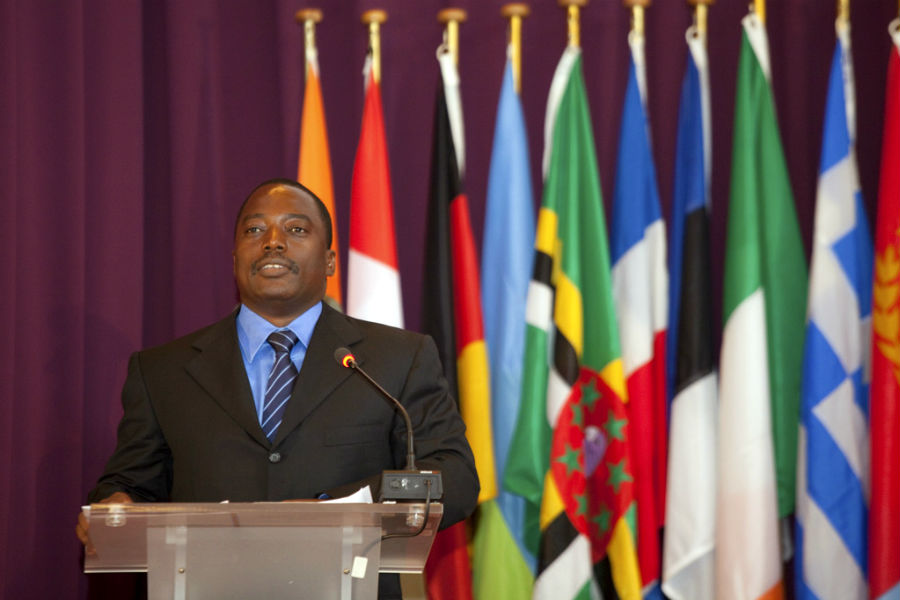
Spotlight
A Looming Calamity in the Democratic Republic of the Congo
Part 1. The DRC appears to be on a slow-motion path to tragedy. After 15 years in office, President Joseph Kabila will fulfill his term limits in December, but he has avoided organizing elections. Instead, he seems intent on holding onto power indefinitely.
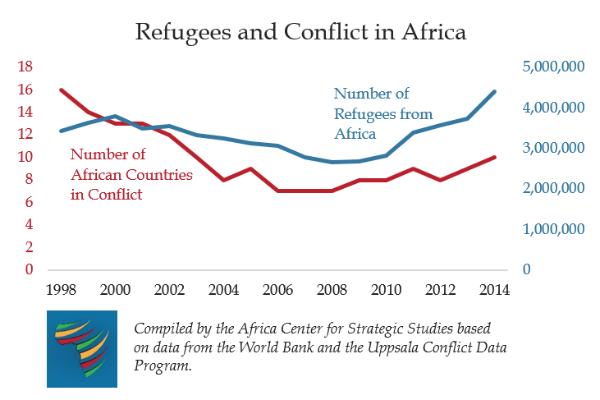
Infographic
Intrastate Conflicts Fuel Refugee Movements
The vast majority of African refugees are hosted by neighboring countries, highlighting the regional costs of conflict and political instability.
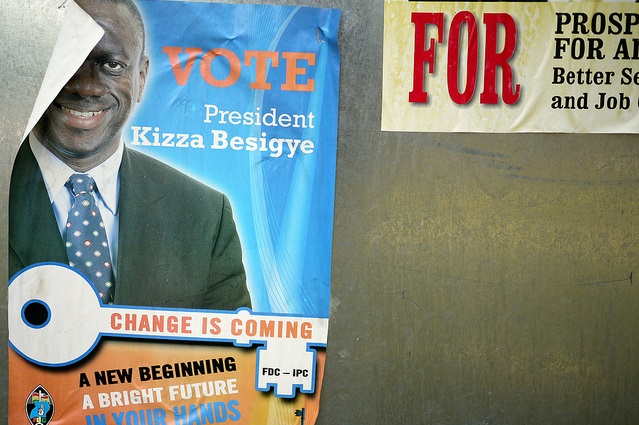
Spotlight
Africa’s Electoral Landscape: Concerning Signals, Reassuring Trends
Between March 2016 and December 2017, there will be at least 52 presidential or parliamentary elections in sub-Saharan Africa. Dorina Bekoe looks at Africa's electoral landscape.
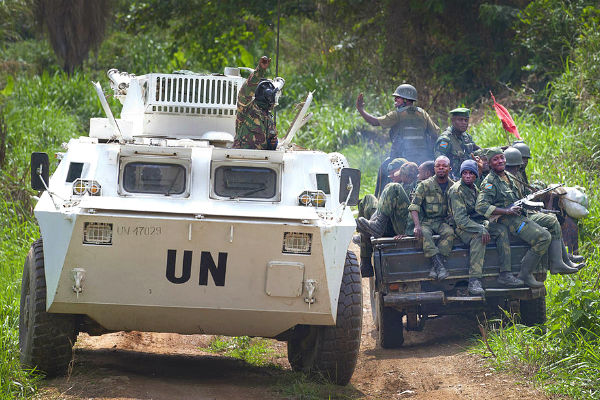
Publication
Unfinished Business: A Framework for Peace in the Great Lakes
Despite numerous peace agreements, Africa’s Great Lakes region has been in a persistent state of conflict for the past two decades. The contributions and shortcomings of some of the most significant previous peace initiatives, however, offer vital lessons as to how to mitigate the local level tensions, national political dynamics, and competing regional interests that have led to recurring outbreaks of violence.
See Also:
Video
Governance and Peace Building in the Democratic Republic of the Congo
Laura Seay of Colby College discusses the political crisis in the DRC and what it means for the future of good governance and the rule of law there.
Video
Natural Resources in Africa Case Study: DRC
This presentation provides a historical look at the Democratic Republic of the Congo and an examination of management and exploitation of natural resources and the intersection of natural resources, stability, conflict, and security.
Senate Hearing
Prospects for Peace in the DRC and Great Lakes Region
Raymond Gilpin, the Africa Center’s Dean of Academic Affairs, testifies before the U.S. Senate Foreign Relations Committee on “Prospects for Peace in the DRC and Great Lakes Region.” Others panelists include diplomats Russell D. Feingold, Roger Meece, and actor/director/activist Ben Affleck.
Video
State and Human Security in Central Africa: Governance and Security Challenges
Efforts to reform the security sector requires broad engagement from government leaders, the military, and civil society. There must likewise be a commitment from donors to look for long-term gains rather than for short-term results. This presentation highlighted lessons learned from the security sector programs in Burundi, the Central African Republic, and the Democratic Republic of the Congo.
Video
Peace Support Operations in Africa
Discussing the modern United Nations and African Union peacekeeping operations environment, Ambassador Roger A. Meece, former head of the UN Stabilization Mission in the Democratic Republic of the Congo (MONUSCO), suggested that peace operations need to integrate traditional peacekeeping with peace enforcement and peacebuilding if they are to be successful.
Video
Regional Hot Spots: Central Africa
Joshua Marks discusses the complexities of and challenges for U.S. foreign and national security policy in the Democratic Republic of the Congo.

